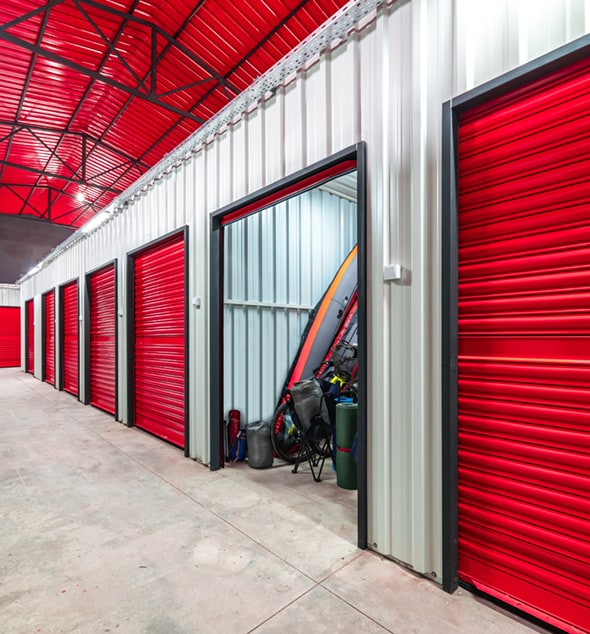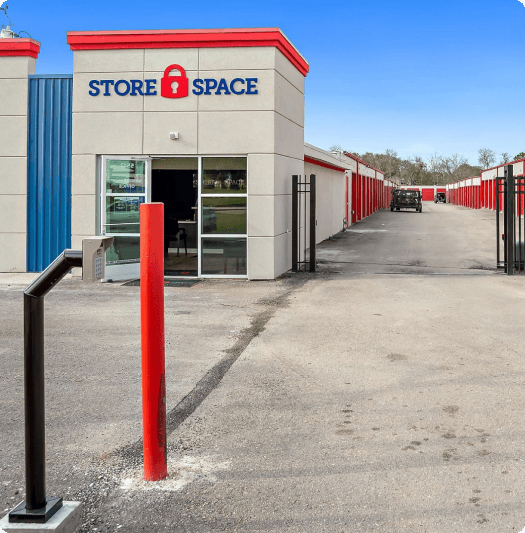Is Providence a Good Place to Live? Moving to Rhode Island

From hidden gem to quirky hotspot, the Renaissance City is attracting more and more Americans who are wondering if Providence is a good place to live.
Ready to make the move to Rhode Island? Find out what makes Providence special by reading our Providence city guide. We’ll explore all the essentials: cost of living, crime rating, job market and more. Along the way, we’ll also provide insight into the pros and cons of living in Providence as we dive deep into the vibrant personality and buzzing culture that makes this New England city truly unique.
After reading through this guide, you’ll be able to decide for yourself if Providence, RI, is a good place to live.
Where is Providence Rhode Island Located?
Providence is located in eastern Rhode Island, at the mouth of the Providence River and near Narragansett Bay and Rhode Island Sound. Aside from being the capital city of Rhode Island, Providence is also the third-most-populous city in New England. In 2020, Providence was estimated to support a population of 190,934 residents, trailing only Boston (675,647) and Worcester, MA (206,518).
| Providence, RI | Data* |
| Population (2010) | 178,042 |
| Population (2020) | 190,934 |
| Area (sq. mi.) | 20.58 |
| Land Area (sq. mi.) | 18.41 |
| Water Area (sq. mi.) | 2.18 |
| Elevation (ft.) | 10 |
| Time Zone | UTC-5 (EST) |
*Date from census.gov
Following in the footsteps of Rome, Providence claims to have been founded on seven hills. Constitution Hill, College Hill and Federal Hill are the most prominent hills in the city. Alongside these hills, Providence is also grouped into 25 distinct neighborhoods. Among them, Fox Point, Federal Hill, Blackstone and Hope, and DownCity are the most popular.
What is Providence Best Known For?
Also known as The Creative Capital, Providence is well known for its blossoming art, cultural and culinary scenes. The city is home to several notable institutions including Brown University, Rhode Island School of Design and Johnson & Wales University. This prestigious and varied education community continues to propel Providence to the forefront of new and exciting endeavors.
Is Providence an Affordable Place to Live?
Depending upon where you’re relocating from, Providence can be an affordable place to live. The average cost of living in Providence is 8.1 percent higher than the average cost of living in the United States, but the city’s cost of living is also 5.5 percent lower than the average cost of living in Rhode Island.
Housing is one area where Providence is a very affordable place to live. The average median home cost throughout Rhode Island is $375,800, while the average median home cost in Providence is $294,500. Health care is another area where Providence is exceptionally affordable when compared to the State of Rhode Island. Transportation and utility costs in Providence are considerably higher than similar costs throughout the state.
The following table compares the total cost of living in Providence to the cost of living in several nearby cities. Each of the cities included in the table has a similar population size to Providence.
| CITY | STATE | COST OF LIVING* |
| Worcester | MA | 102.2 |
| Cambridge | MA | 181.8 |
| Springfield | MA | 89.7 |
| Hartford | CT | 103.1 |
| Providence | RI | 105.1 |
*Compared to a national average of 100 by BestPlaces.net
Is Providence a Safe Place to Live?
According to areavibes.com, crime rates in Providence are 24% higher than the average crime rate across the United States. Furthermore, violent crimes in Providence are 25% higher than the United States average. Taking these statistics into account, Providence is safer than approximately 19% of cities across the United States and crime in Providence has decreased 17% year-over-year.
What are the Pros of Living in Providence?
The pros of living in Providence include the area’s booming job market, walkable layout, family-friendly design and endless list of things to do. Below we’ll discuss each of these pros in more detail.
Booming job market
Historically, Providence was one of the first cities in the United States to industrialize. This progress directly rooted Providence in manufacturing industries such as textiles, machine tools, jewelry and silverware. By the early 1900s, some of the largest manufacturing plants in the country were located in Providence, making it one of the wealthiest cities in the United States.
With the fall of local manufacturing looming in the early 2000s, Providence created an economic plan to shift its focus to becoming a knowledge-based economy. The plan involved rebranding the former Jewelry District as the “Knowledge District” and capitalizing on the area’s many prestigious education and design centers. Today, the Providence economy is deeply embedded in service industries such as education, healthcare and tourism.
The largest employers in Providence include Brown University, Rhode Island Hospital, Lifespan Health System, Woman & Infants Hospital, and Roger Williams Medical Center. Notable other employers in the Providence area include Verizon, Walmart, Nordstrom and Target.
Walkable layout
While nearby cities such as Boston are consistently cited as a “commuter paradise,” Providence is also one of the most walkable cities in the United States. According to WalkScore.com, Providence has a walk score of 76 (very walkable) and a bike score of 61 (bikeable)
Most errands in Providence can be accomplished on foot. This pro makes Providence a great city for those looking to walk to work or those who don’t want to have to rely on a vehicle to get around.
Family-friendly community
Providence’s abundance of thriving neighborhoods makes it a great place to start a family and raise children.
Blackstone is one of the city’s premier neighborhoods. The neighborhood boasts an impressive and safe crime rating, provides access to some of the best public and private schools in the area, and is outfitted with a variety of parks and green spaces. Other notable neighborhoods for families in Providence include Wayland, College Hill, Hope and Fox Point.
Overall, families will be pleased with Providence’s education, recreation and health care resources. The top public schools in the city are Blackstone Valley Prep, Classical High School and Rise Prep Mayoral Academy. The top private schools in Providence include The Wheeler School, Moses Brown School and the Lincoln School.
Providence also boasts some of the best colleges and universities in the nation. Brown University is the most prestigious university in Providence. The Rhode Island School of Design and Providence College are also exceptional educational institutions located in the city.
Endless things to do
Another pro of living in Providence is the city’s bounty of interesting and fun things to do. No matter what you’re into, you can probably find it in Providence.
The city is well known for its tasty culinary creations. If you’re looking to get a taste of Providence, try the hot wiener (yes, that’s what this local favorite is called) at the Olneyville New York System Restaurant or the pizza at Venda Ravioli. The caramelized Fruity Pebbles Choco Taco at Tricycle Ice Cream is also a well-known favorite that perfectly displays the creative and tasty pallet of New England.
If you’re an art fanatic, you’ll enjoy checking out the collection of work at the RISD Museum while walking through the many exhibits. Other museums in Providence include the Museum of Natural History and Planetarium, The John Brown House Museum and the Providence Children’s Museum.
While outdoor recreation and city life rarely coincide, Providence residents can stroll through India Point Park, spot animals at the Roger Williams Park Zoo or take a 14.5-mile bike ride on the East Bay Bike Path. The latter of which is considered to be the best bike route in all of New England.
What are the Cons of Living in Providence?
While for the most part, Providence is an exciting place to live, there are also a few cons to living in the area. Aside from the higher-than-average cost of living, the most notable cons to living in Providence are the harsh and cold winters, high sales tax, and heavy traffic. Keep reading to learn more about each of these cons to living in Providence.
Cold winters
Winter weather in Providence can be brutal. If you already live in New England or another snowy region of the United States, this might not be a significant adjustment. However, if you’re unprepared, winter in Providence can leave you thinking twice about your recent move.
According to NOAA, Providence receives an average of 35 inches of snow per year. The coldest month in Providence is January with a low of 26 degrees Fahrenheit and a high of 39 degrees Fahrenheit. Comparatively, the warmest month in Providence is July, with a high of 83 degrees Fahrenheit and a low of 69 degrees Fahrenheit.
High sales tax
Another con of living in Providence is Rhode Island’s higher-than-average sales tax. Overall, Rhode Island is tied with Indiana, Mississippi, and Tennessee and has the second-highest sales tax rate in the United States. The state’s rate of 7% is only lower than California’s whopping 7.25% sales tax rate.
Taxes in Rhode Island are also relatively high for retired individuals. High-income earners will have to pay taxes on everything from Social Security benefits to retirement income while living in Rhode Island. Many other states in the United States have tax structures that better suit retired individuals. According to Kiplinger, Rhode Island is one of the unfriendliest states for retirees.
Heavy traffic
Because of Rhode Island’s compressed size and Providence’s large population, traffic can be a real problem in and out of the capital city. One of the leading causes of traffic in Providence is the city’s grid-system layout. This layout can create major choke points in and around major highways and connectors. Add to this constant congestion on I-95 and the 6/10 connector and Providence can be a very stressful place to drive an automobile.
The city is working on addressing the problem through multiple transportation projects. One of the major projects is an overhaul of the 6/10 connector, which is estimated to greatly improve commute times in and out of the city. However, the project isn’t estimated to be completed until 2023.
Providence RI FAQs
Are people moving out of Rhode Island?
According to Patch.com, Rhode Island was one of the top 10 states to move to in 2021. The article cites an additional study completed by United Van Lines, which found that 59.1 percent of all moves to or from Rhode Island were by people coming into the state.
What is living in Providence Rhode Island like?
Providence supports a diverse community of young professionals and families. Pillars of the Providence community include art, education and culinary science. The city has a growing economy rooted in service industries such as health care, education and tourism, and the city continues to honor its New England roots with its quaint vibe and dedication to progress.
Is it worth moving to Rhode Island?
Like any move, moving to Rhode Island will be a unique experience for all of those who make the decision to give it a try. Some individuals will find Rhode Island’s vibe, economy and personality to be well suited to their own preferences and lifestyle. Others, especially retirees, will find Rhode Island’s state taxes, traffic and congestion to be a hindrance to their goals and aspirations.
Are you moving to Providence?
If you’re ever in need of professional self-storage, find Store Space in Providence or use our storage location finder for the storage facility nearest you!
We will see you soon!







